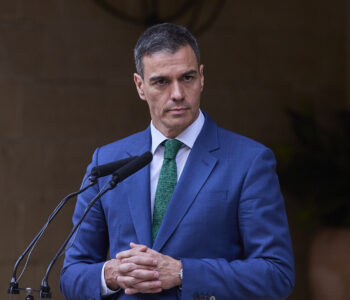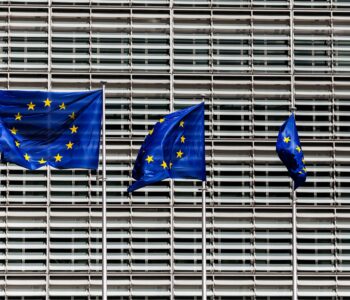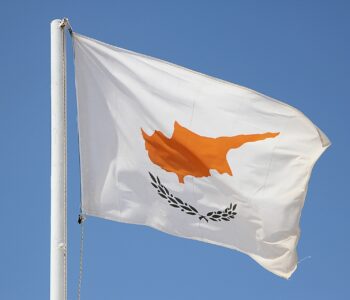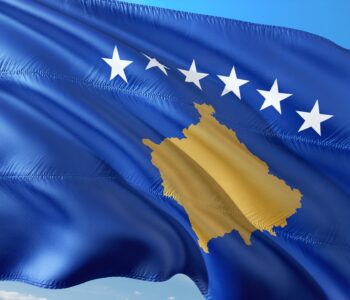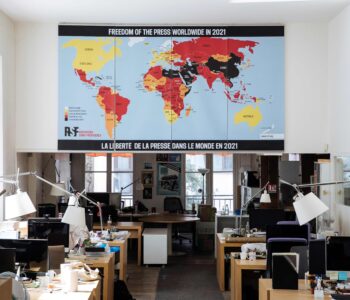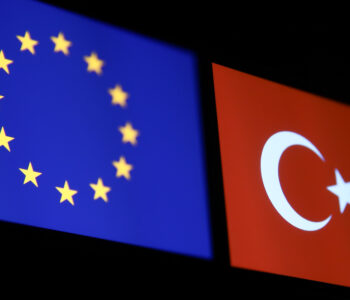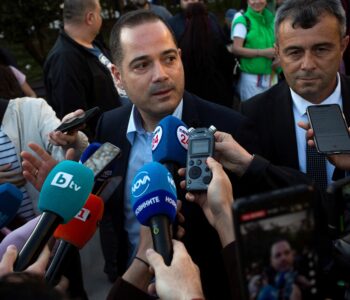 Library
Library
Turkey: Press freedom and freedom of expression groups, media…
Turkey: Press freedom and freedom of expression groups, media outlets and civil society condemn regulator’s decision to shutter Açık Radyo
The MFRR partners, along with 56 press freedom and freedom of expression groups, media outlets and civil society organizations, condemn the official revocation of the terrestrial broadcasting license of independent radio station Açık Radyo by Turkey’s broadcast regulator, RTÜK (Radio and Television Supreme Council). This action marks a severe blow to independent radio broadcasting in Turkey, silencing a platform known for promoting diverse, critical voices and addressing issues of profound public interest.
(Turkish below)
Açık Radyo, an independent and non-profit media organisation founded in 1995, has long been a vital source of free expression in Turkey. Over the past three decades, it has provided an indispensable space for debates on crucial topics ranging from war and peace, environmental and climate struggles to public health, gender equality, and multiculturalism. The decision to revoke its license threatens not only the future of this essential platform but also the broader landscape of independent media in Turkey.
We call on Turkish authorities to fulfil their obligations to protect freedom of the press and expression in line with the Constitution of the Republic of Turkey and the European Convention on Human Rights. We urge the immediate reinstatement of Açık Radyo’s broadcasting license, ensuring that media outlets in Turkey can operate and enable discussion on matters of public interest without fear of reprisal.
Request for “stay of execution” rejected
On July 10, the Ankara 21st Administrative Court had decided to suspend the execution of the case in question until a new decision is made, stating that suspension of the program broadcast could cause irreparable damage. RTÜK then objected to this decision of the court. On August 9, the Ankara 10th Regional Administrative Court rejected RTÜK’s objection because there was no violation of the law in the given decision.
However, the Ankara 21st Administrative Court, with a new decision, this time ruled to “reject the request for stay of execution”. Açık Radyo will object to this decision within the legal framework.
Decision to revoke the license
Turkey’s broadcast regulator had penalised Açık Radyo in May following the statements of a guest who participated in the April 24 broadcast of the program called Açık Gazete, saying, “(…) the 109th anniversary of the deportations and massacres, referred to as genocide, that occurred on Ottoman soil. The Armenian genocide commemoration was banned again this year, as you know.” RTÜK had imposed an administrative fine and a five-day broadcast suspension penalty on the channel under Article 8 of the Radio and Television Broadcasting Law No 6112 for allegedly “inciting the public to hatred and hostility or creating feelings of hatred in society.” Açık Radyo had paid the fine but continued broadcasting.
After evaluating that the conditions specified in the sanction had been violated, RTÜK then decided to revoke Açık Radyo’s broadcasting license in July. However, this decision was not communicated to Açık Radyo at the time due to the ruling for stay of execution. Following the rejection of request for stay of execution in the meantime, the decision to revoke the terrestrial broadcasting license was only notified on October 11. As per the decision, the station’s terrestrial broadcasting was shut down on October 16 at 13:00.
Açık Radyo, an independent and non-profit media organisation launched in 1995, invited all its listeners, professional organisations, and the international public to support them against this decision.
Censorship of independent media and threat to freedom of information
The decision by Turkey’s broadcast regulator to revoke Açık Radyo’s license has significant implications for media freedom and public access to information. A terrestrial broadcasting license allows a station to transmit audio content via radio waves. With this decision, Açık Radyo will no longer be able to broadcast on the 95.0 FM frequency. This action effectively limits the station’s ability to reach its audience through traditional radio channels, restricting the public’s access to diverse viewpoints and information.
The revocation of Açık Radyo‘s terrestrial broadcasting license, as the station approaches its 30th anniversary in November 2024, represents a serious escalation in Turkey’s efforts to suppress independent media and is in direct violation of the exercise of the right to freedom of expression as protected under Turkey’s Constitution and the European Convention on Human Rights. The station’s closure would deprive the society in Turkey of a unique, independent voice committed to pluralism.
As undersigned press freedom and freedom of expression groups, media outlets and civil society organisations, we call on RTÜK to uphold its mandate to protect media pluralism and freedom of expression, immediately reverse its decision to revoke Açık Radyo’s broadcasting license and to cease its censorship of critical and independent outlets like Açık Radyo.
This statement was produced by IPI as part of the Media Freedom Rapid Response (MFRR), a Europe-wide mechanism which tracks, monitors and responds to violations of press and media freedom in EU Member States and candidate countries, funded by the European Commission.

Türkiye: Basın ve ifade özgürlüğü, medya ve sivil toplum kuruluşları, RTÜK tarafından Açık Radyo’nun karasal yayınının kesilmesini kınıyor
Uluslararası Basın Enstitüsü (IPI), aşağıda imzası bulunan 60 basın ve ifade özgürlüğü, medya ve sivil toplum kuruluşuyla birlikte, Türkiye’nin yayın düzenleyicisi RTÜK’ün bağımsız radyo istasyonu Açık Radyo’nun karasal yayın lisansını resmi olarak iptal etmesini kınıyor. Çeşitli ve eleştirel sesleri öne çıkarmasıyla ve kamuoyunu ilgilendiren konuları aydınlatmasıyla bilinen Açık Radyo’nun susturulması Türkiye’de bağımsız radyo yayıncılığına ağır bir darbedir.
1995’te kurulan bağımsız ve kâr amacı gütmeyen bir medya kuruluşu olan Açık Radyo, uzun zamandır Türkiye’de ifade özgürlüğünün hayati bir kaynağı olmuştur. Son otuz yıldır, savaş ve barıştan, çevre ve iklim mücadelelerine, halk sağlığına, cinsiyet eşitliğine ve çok kültürlülüğe kadar uzanan önemli konulardaki tartışmalar için vazgeçilmez bir alan sağlamıştır. Radyo ve Televizyon Üst Kurulu’nun (RTÜK) kararı yalnızca bu elzem platformun geleceğini değil, aynı zamanda Türkiye’deki bağımsız medyanın varlığını da daha fazla tehdit etmektedir.
Türkiye’deki yetkilileri, Türkiye Cumhuriyeti Anayasası ve Avrupa İnsan Hakları Sözleşmesi doğrultusunda basın ve ifade özgürlüğünü koruma yükümlülüklerini yerine getirmeye ve Açık Radyo’nun lisansını iade etmeye çağırıyoruz. Türkiye’deki medya kuruluşları, kamuyu ilgilendiren konularda yaptırım korkusu olmaksızın tartışmaya olanak sağlamakta özgür olmalıdır.
“Yürütmenin durdurulması” talebi reddedildi
10 Temmuz’da Ankara 21’inci İdare Mahkemesi, program yayınının durdurulmasının telafisi güç zarar doğurabilecek nitelikte bulunduğundan, yeni bir karar verilinceye kadar, dava konusu işlemin yürütmesinin durdurulmasına karar vermişti. Mahkemenin bu kararına karşı RTÜK itiraz etmişti. 9 Ağustos’ta ise Ankara Bölge 10’uncu İdare Mahkemesi, verilen kararda yasaya aykırılık bulunmadığı için RTÜK’ün itirazını reddetmişti.
Ancak Ankara 21’inci İdare Mahkemesi yeni bir karar ile bu kez “yürütmenin durdurulması isteminin reddine” karar verdi. Açık Radyo yasal çerçevede bu karara itiraz etmeye hazırlanıyor.
Lisans iptali kararı
RTÜK, Açık Radyo’da Açık Gazete adlı programın 24 Nisan tarihli yayınına katılan konuğun “(…) Ermeni, yani Osmanlı topraklarında gerçekleşen tehcir ve katliamların, soykırım olarak adlandırılan katliamların 109. Yıldönümü, sene-i devriyesi. Bu yıl da yasaklandı biliyorsunuz Ermeni soykırım anması” şeklindeki ifadelerinin ardından Mayıs ayında Açık Radyo’ya ceza vermişti. RTÜK, radyoyu Radyo ve Televizyonların Kuruluş ve Yayın Hizmetleri Hakkında 6112 Sayılı Kanun’un 8. maddesi uyarınca “toplumu kin ve düşmanlığa tahrik etmek veya toplumda nefret duyguları oluşturmak” iddiasıyla idari para cezası ve beş günlük yayın durdurma cezasına çarptırmıştı. Açık Radyo, para cezasını ödemiş ancak yayına devam etmişti.
RTÜK, yaptırımda belirtilen koşulların ihlal edildiğini değerlendirdikten sonra Temmuz ayında Açık Radyo’nun yayın lisansını iptal kararı almıştı. Fakat bu karar, Açık Radyo’ya tebliğ edilmemişti. Yürütmeyi durdurma talebinin reddedilmesinin ardından karasal yayın lisansı iptali kararı ancak 11 Ekim’de tebliğ edildi. Karar doğrultusunda karasal yayın 16 Ekim saat 13:00 itibariyle kesildi.
https://www.instagram.com/reel/DBEdfr-MWwy/?igsh=cmMwaHlsbXNvb3li
1995 yılında kurulan, bağımsız ve kâr amacı gütmeyen bir medya kuruluşu olan Açık Radyo, tüm dinleyicilerini, meslek örgütlerini ve uluslararası kamuoyunu bu karara karşı kendilerine destek olmaya davet etti.
Bağımsız medyaya yönelik sansür ve bilgi edinme hakkına tehdit
Türkiye’nin yayın düzenleyicisi RTÜK’ün Açık Radyo’nun lisansını iptal etme kararı, medya özgürlüğü ve halkın bilgiye erişimi açısından önemli sonuçlar doğurmaktadır. Karasal yayın lisansı, bir istasyonun radyo dalgaları aracılığıyla ses içeriği iletmesine olanak tanır. Bu kararla birlikte, Açık Radyo artık 95.0 FM frekansında yayın yapamayacak. Bu karar, istasyonun geleneksel radyo kanalları aracılığıyla dinleyicilerine ulaşmasını etkili bir şekilde sınırlayacak ve halkın farklı görüş ve bilgilere erişimini kısıtlayacaktır.
Açık Radyo‘nun karasal yayın lisansının radyonun Kasım ayında 30. yayın yılına yaklaşırken iptal edilmesi, Türkiye’nin bağımsız medyayı susturma çabalarında ciddi bir tırmanışı temsil etmektedir. Bu karar, Türkiye Anayasası ve Avrupa İnsan Hakları Sözleşmesi tarafından korunan ifade özgürlüğünün doğrudan ihlâli niteliğindedir. Çok sesliliğe adanmış bağımsız bir platform olan Açık Radyo’nun kapatılması, toplumu benzersiz ve bağımsız bir sesten mahrum bırakacaktır.
Aşağıda imzası bulunan basın ve ifade özgürlüğü, medya ve sivil toplum kuruluşları olarak, RTÜK’ü medyada çoğulculuğu ve ifade özgürlüğünü koruma görevini yerine getirmeye davet ediyoruz. Açık Radyo’nun yayın lisansının iptaline yönelik kararını derhal geri çekmesini ve Açık Radyo gibi eleştirel ve bağımsız kuruluşlara yönelik sansüre son vermesini talep ediyoruz.
Bu açıklama, Avrupa Komisyonu tarafından finanse edilen ve AB Üye Devletleri ile aday ülkelerdeki basın ve medya özgürlüğü ihlâllerini belgeleyen Avrupa çapında bir mekanizma olan Medya Özgürlüğü Acil Müdahale (MFRR) kapsamında Uluslararası Basın Enstitüsü (IPI) tarafından hazırlanmıştır.

